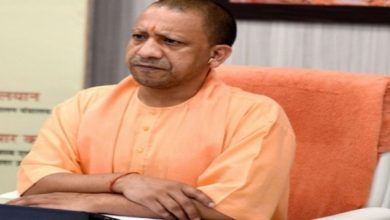Budget allocation for the HRD Ministry increased Rs. 4457.88 crore in 2020-21 in comparison of 2019-20
New Delhi: Union Human Resource Development Minister Shri Ramesh Pokhriyal ‘Nishank’ appreciated the Union Budget 2020-21 and expressed his gratitude to Finance Minister Smt. Nirmala Sitharaman for giving priority to education sector and allocating Rs.99,300 crore for Education. The total Budget allocation for the HRD Ministry increased Rs. 4457.88 crore in 2020-21 in comparison of 2019-20.
Shri Pokhriyal appreciated the announcement of introduction of degree level online education programme, through this initiative Gross Enrolment Ratio will be increased and education will be accessible to all sections of the society. Shri Nishank applauded that the budget allocation for Samagra Shiksha has also been increased by 6.69 percent in comparison to previous year’s budget.
Union HRD Minister gave the reference of Economic Survey 2019-20 and said that the expenditure in education sector as percentage of GDP increased from 2.8% in 2014-15 to 3.1% in 2019-20 which shows that education is the priority of our government.
Union Finance Minister, Smt Nirmala Sitharaman presented the Budget for the financial year 2020-21 in the Parliament today. The Budget has given a major push to the education sector of the country. The total Budget allocation for the HRD Ministry is Rs.99,300 crore. The Department wise details are as follows:
Department of Higher Education
1. Total allocation of Higher education is Rs. 39466.52 Cr against the last year allocation of Rs. 38317.01 Cr. There is an increase of about Rs.1149.51 Cr as compared to last year’s allocation.
2. A new scheme named, Education Quality Up-gradation and Inclusion Program (EQUIP), has been envisaged by the Department of Higher Education, MHRD. It is an overarching program, which sets out to deliver further on the principles of access, inclusion, quality, excellence, and enhancing employability in higher education. For this scheme, an initial budgetary provision of Rs.1413 Cr has been kept. Further budgetary provision shall be made after appraisal and approval of the scheme by the competent authority.
3. A provision has been made to strengthen the HEFA by infusing the additional Government Equity of Rs. 2200 Cr. This will help in meeting the increasing budget requirement of the Central Institutions for improving or augmenting their infrastructure like buildings, classrooms, hostels, laboratories, and equipment which are crucial elements of learning environments.
4. Rs. 650 Cr have been provisioned for World Bank assisted Technical Education Quality Improvement Program i.e. TEQIP. The project aims at enhancing quality and equity in engineering institutes and improving the efficiency of the engineering education system in focus states
5. The allocation for “Interest Subsidy and Contribution to Guarantee Fund” has been maintained at Rs. 1900 Cr. This is for disbursal of easy and interest-free loans to students who want to pursue professional higher education.
6. Total allocation to the Indian Institutes of Technology (IITs) is kept at Rs 7332 Cr, which is 14.38% more than the last year.
7. Total allocation to the National Institutes of Technology (NITs) is kept at Rs 3885 Cr, which is 2.58% more than the last year.
8. Total allocation for the regulators [UGC and AICTE] has been maintained at Rs 5109.20 Cr.

Department of School Education & Literacy
1. There has been an overall increase of Rs. 3308.37 cr (5.85%) in the Budget Allocation of Department of School Education & Literacy in the FY 2020-21 from FY 2020-21
2. The overall Budget Allocation in FY 2020-21 is Rs. 59845 cr out of which Scheme allocation is Rs. 50600 cr and Non- Scheme allocation is Rs. 9245 cr.
3. RE 2019-20 was retained at the level of BE 2019-20.
4. Budget Allocation in the Flagship Scheme of Samagra Shiksha has increased (by Rs. 2428.50 cr).
5. Allocation in KVS has increased by Rs. 504.50 cr and in NVS by Rs. 232 cr w.r.t BE 2019-20.
6. A new Scheme “Pradhan Mantri Innovative Learning Programme (DHRUV)” to identify and encourage talented children to enrich their skills and knowledge has been envisaged from FY 2020-21.

Presenting the Budget for the financial year 2020-21 in the Parliament today, the Union Finance and Corporate Affairs Minister, Smt Nirmala Sitharaman said that a total outlay of Rs.99,300 crore has been earmarked for the education sector in 2020-21 and Rs.3000 crore for Skill Development. “By 2030, India is set to have the largest working age population in the world. Not only do they need literacy but they need both job and life skills”, the Finance Minister explained.
Smt Nirmala Sitharaman announced that about 150 Higher Educational Institutions will start apprenticeship embedded degree/diploma courses by March 2020-21. This will help to improve the employability of students in the general stream (vis-a-vis services or technology stream). The government will also start a program whereby urban local bodies across the country would provide internship opportunities to fresh engineers for a period of up to one year. National Skill Development Agency will give special thrust to infrastructure-focused skill development opportunities, the Minister explained.
The Finance Minister, in her speech also said that the New Education Policy will be announced soon. Smt Nirmala Sitharaman stated that steps will be taken to enable sourcing External Commercial Borrowings and FDI to ensure greater inflow of finance to attract talented teachers, innovate and build better labs.
Degree level full-fledged online education programme will be started to provide quality education to students of deprived sections of the society as well as those who do not have access to higher education. However, these shall be offered only by institutions who are ranked within top 100 in the National Institutional Ranking Framework.
The Finance Minister observed that India should be a preferred destination for higher education. Therefore, under its “Study in India” programme, an Ind-SAT is proposed to be held in Asian and African countries for benchmarking foreign candidates who receive scholarships for studying in Indian higher education centres.

